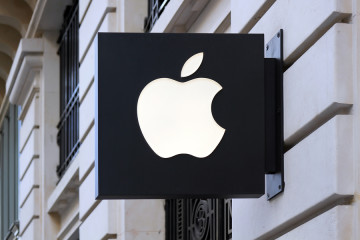Matt Levine’s Money Stuff: Sovereign Default and Bank Culture

published Nov 14, 2017, 8:42:58 AM, by Matt Levine
(Bloomberg View) —
Venezuela.
Yesterday Venezuela had a big meeting with its creditors to discuss how it is going to restructure its debt. Well, not really. A little bit. That was the general idea. But there are obstacles to actually having a big meeting to actually discuss how to actually restructure the debt. For one thing, the government officials in charge of the negotiation include an alleged narcotrafficker subject to U.S. sanctions, so some investors avoided the meeting, “fearful of violating rules governing interactions with them.” For another thing, even if investors did go to the meeting, sanctions on Venezuela would prevent them from executing a restructuring, so the talks would be a little pointless. Also the meeting was in a building “flanked by national guards carrying assault rifles and riot shields,” “in a neighborhood that’s known to be particularly dangerous at night,” so it wasn’t exactly a fun boondoggle despite the “gift bags stuffed with state-produced chocolate and coffee” for the investors who did show up.
Also it’s not like Venezuela was actually going to do any negotiating:
Nothing of import was announced and nothing of import was resolved, according to attendees who said they left just as confused about the government’s intentions as they were going in. Vice President Tareck El Aissami was the only official to speak, and devoted most of his prepared remarks to railing against Donald Trump and global financiers who he said have conspired to keep the country from making debt payments on time. He pledged the nation would continue to honor its obligations and work with bondholders to find new ways to get them their money, but offered no concrete proposals for restructuring.
There have been a lot of clever papers offering Venezuela advice on how it can intelligently restructure its debt, but that advice is usually directed to a hypothetical Venezuela, one with a government trusted by international markets and not subject to U.S. sanctions. The actually existing Venezuela is still run by Nicolás Maduro, who does not show any signs of wanting to step down in order to make a debt restructuring easier.
So … what? Yesterday S&P Global Ratings declared Venezuela in default on its debt. The International Swaps and Derivatives Association is considering whether Petróleos de Venezuela SA, the state-owned oil company, is in default for credit-default swap purposes. These are interesting data points, but they don’t have all that much to do with the relationship between Venezuela and its creditors, who have no especially great options:
Investors in Venezuela’s $5 billion of bonds maturing in 2019 and 2024 can organize to demand that the nation immediately pay back all they’re owed, and down the line, holders of the nation’s other debt, which have cross-default provisions, could choose to do the same.
It’s possible investors won’t take those actions, and instead put their hopes on getting a delayed payment. Otherwise, they risk setting off what could be the start of one of the messiest debt restructurings ever.
There is a normal dynamic in sovereign debt restructuring negotiations. The creditors have the power to do bad stuff to the debtor: seize its assets, shut it out of debt markets, get court orders against it. This stuff is usually not especially pleasant for the creditors; it takes a lot of time and legal fees, it’s hard to coordinate among creditors, and usually — unless they are able to seize a lot of marketable assets — it doesn’t actually get them paid directly. So they’d rather not do it. But they can do it, and that gives them leverage over the debtor, and so everyone gets together to hash out a restructuring in the shadow of the creditors’ legal threats.
But that just doesn’t work with Venezuela, or at least, not with the actually existing 2017 Venezuela run by the Maduro regime. There are serious barriers to everyone getting together to hash out a restructuring, and even if there weren’t, it doesn’t seem like markets would trust Maduro to negotiate one anyway. So the creditors don’t get to do the normal thing, which is to negotiate in the shadow of their ability to take unpleasant actions. All they can do is actually take the unpleasant actions. (Which ordinarily wouldn’t get them that far, though here, with billions of dollars of foreign commercial assets controlled by PDVSA, they might.) Or they can just sit and wait and hope that eventually Maduro will find a way to pay them, or that Maduro will go away.
Wells Fargo.
Last year Wells Fargo & Co. got in a lot of trouble because its employees opened millions of fake accounts for customers to meet sales quotas. That was bad and illegal. Since then there have been a lot of stories about how terrible things were at Wells Fargo, though, and what is striking about them is that all of the emotional drama — all of the gut-wrenching, obviously terrible moments — center around the legal things that the bankers did to meet sales quotas. Nobody really gets that emotional about a fake bank account. For the employees, it just means typing some characters into a computer. For the customers, it means being mildly confused to find a checking account with two cents in it. It’s a bland neutral (illegal) solution to a real problem. The real problem, for the Wells Fargo employees, was stuff like this:
He found himself roaming the aisles at Petco, the animal-supplies store, trying to persuade dog-grooming specialists to sign up for small-business services. He would try to time his visits to coincide with managers’ lunch breaks. Even so, he got caught and thrown out. Three times.
That’s from this Financial Times story about the difficulties faced by whistleblowers, and about Wells Fargo’s high-pressure sales culture, which had branch bankers sneaking into Petco to try to get dog groomers to sign up for banking products. The Petco guy — a Wells Fargo banker named Nvèr Hasratyan — is the lead anecdote in the story. “He says the job felt like pushing nightclub invitations to strangers.” But no one pays multimillion-dollar fines for pushing nightclub invitations to strangers. Congress wouldn’t have held hearings if Wells Fargo had stuck to cruising Petcos for prospects. All of this stuff is fine, normal, legal sales practices. It is just kind of depressing.
So on the one hand the core of the Wells Fargo story is the fake accounts. Nightclub operators don’t get in trouble for giving out fake flyers because that is not a thing. How would it be profitable? Of course Wells Fargo’s fake accounts don’t seem to have been profitable either, but Wells Fargo is a giant bank that has to use broad metrics to measure success, and some of those metrics turned out to be easy to game. Also there was stuff like this:
Former Wells employees say senior managers never directly encouraged anyone to break rules. But the instructions were often implicit. Mr Hasratyan remembers a visit from a district manager who rattled off half a dozen ways to hit targets, adding that most were illegal and all were unethical. Nonetheless, staff picked up on the “reverse psychology”, he says.
But on the other hand the deep resonance of the Wells Fargo story is about something else. What people find troubling is not that Wells Fargo bankers met their quotas with fake accounts, but that they had such exacting quotas to begin with, that there was such a grubby high-pressure sales culture. Partly this is troubling because people expect, or pretend to expect, something different from financial services: Banking is complicated and important, and you want your banker to give you fair objective advice on what to do, rather than be pressured to sell you products. This seems like a bit of an old-fashioned view. Everything, these days, is sales. It is a little unreasonable to expect financial companies to be less commercially motivated than, you know, nightclubs.
But it is what people expect — and not just customers or journalists or politicians, but even the bankers themselves. The FT story starts, as a lot of these stories do, with the telling detail that Hasratyan “was thrilled to start building a career at America’s third-biggest bank by assets.” He wanted a professional career, one where he wore a suit and was a trusted adviser to clients — not one where he pushed nightclub invitations on strangers. Wells Fargo’s customers didn’t want their bankers to be salespeople, but the bankers didn’t want to be salespeople either. The customers wanted trusted advisers, and the bankers wanted to be trusted advisers, but the modern financial economy had no room for that role. They were stuck doing sales.
Tech.
Here is Sheelah Kolhatkar on gender discrimination in the technology industry:
But part of what differentiates tech is the industry’s self-regard, as a realm of visionary futurists and tireless innovators who are making the world better. Without irony, they tell themselves, “Don’t be evil,” parroting Google’s code of corporate conduct. In many ways, the tech world does represent the future: it has attracted a generation of the most promising engineers, scientists, and coders and paid them handsomely, all but assuring that they will have influence over the nation’s ideas and values for years to come. It’s deeply troubling, then, that many of these companies and their C.E.O.s have created an internal culture that, at least when it comes to sexual harassment and gender inequality, resembles the Mad Men era, without the skinny ties and Martini lunches.
There is another side of this, which is that this messianic belief that the tech industry is creating the future can be used to excuse bad behavior. There’s no time for human-resources best practices if you’re changing the world. Normal people work at jobs, and go home at the end of the day, and understand that while their work is important, being a decent human being is also important. But if you have decided that your work is important enough — that you are creating the future of humanity — then you can justify caring less about decency, or about the needs and feelings of other individual people. You are changing billions of people’s lives; the handful of co-workers who suffer are just rounding error.
This can get particularly stupid. Uber Technologies Inc. is a taxi company that tolerated sexual harassment and discrimination because it was changing the world, with taxis. “No more brilliant jerks,” said Uber board member Arianna Huffington, after Uber developed a reputation for tolerating brilliant jerks for years. At a taxi company. Who cares that they are jerks, the thinking seems to have been — who cares about the fratty culture and the sexual harassment and even the willingness to ignore the law — if they are changing the world? With taxis.
Elsewhere, “Tesla Is a ‘Hotbed for Racist Behavior,’ Worker Claims in Suit.” And Steve Jurvetson, a founding partner of leading venture capital firm Draper Fisher Jurvetson, is leaving the firm to pursue his real passion, which is … suing women who have accused him of sexual harassment? “I am leaving DFJ to focus on personal matters, including taking legal action against those whose false statements have defamed me,” he tweeted. I have to say that I-will-sue-my-accusers threats like this are (1) rarely true and (2) never a good look. Take up golf or something!
People are worried that people aren’t worried enough.
The Federal Reserve Bank of New York’s Liberty Street Economics blog is a blog after my own heart. After spending the last few years worrying about bond market liquidity, it is now worrying that people aren’t worried enough:
In recent months, some analysts and policymakers have raised concerns about the unusually low level of stock market volatility. For example, in the June Federal Open Market Committee (FOMC) minutes “a few participants expressed concern that subdued market volatility, coupled with a low equity premium, could lead to a buildup of risks to financial stability.” In this post, we review this concern and find the evidence on investor complacency is mixed.
The evidence is always mixed, in these sorts of posts. (Also: “An open question is whether investors understand that volatility may be higher in the future,” heh.) But the argument that low volatility is nothing to worry about is one that I am fond of:
According to asset pricing theory, stock prices are equal to the expected value of discounted dividends. As a result, stock price volatility results from either dividend volatility or time-variation in the discount rate used to compute the net present value of dividends.
As discussed in Robert Shiller’s Nobel Prize lecture , the original puzzle in financial economics was why stock prices are so volatile relative to dividends. According to the Gordon growth formula, stock prices and dividends should have the same volatility. In the data, however, stock prices are significantly more volatile than dividends. Since the 1950s, stock prices have exhibited 16 percent annualized volatility. That is almost 10 percentage points higher than the “fundamental” volatility of dividends, which has been closer to 7 percent (for example, see Shiller’s annual data).
So stock volatility should be around 7 percent, based on the volatility of the actual future cash flows being discounted by stock prices, and the fact that it has historically been in the mid-teens is what’s weird. Or that is a traditional view; the Liberty Street authors note that the more modern view incorporates time-varying discount rates to explain higher volatility. But in any case, “today’s realized volatility is about 6-7 percent”:
This level is what one would have originally predicted using the Gordon growth formula, suggesting that the low volatility puzzle is perhaps less puzzling than originally thought. Alternatively, if one subscribes to the more recent asset pricing theories, it appears that current volatility is either abnormally low or that discount rate variation has somehow been dampened, leading us back to concerns about investor complacency.
I mean one could argue that “discount rate variation has somehow been dampened” by actual central-bank interest-rate policies, not by complacency, but complacency is an option.
In any case, I love the possibility that low volatility could just be the market getting smarter. Once, the stock market was a playground for human emotions; people watched the news, panicked or rejoiced about what it would mean for their stock portfolios, and traded accordingly. They constantly overreacted, because humans constantly overreact to everything; recency and saliency biases caused them to overshoot and overcorrect on each piece of news. And now — maybe — they don’t. Because they are index investors and don’t follow the news all that closely, perhaps, or because they are computers running quantitative strategies and don’t have human reactions. “Man, did you see Trump’s latest tweet?,” ask the humans in a panic. “I do not see how this changes the expected value of discounted future dividends,” reply the computers boringly. They are not complacent, exactly; they are just focused. They have tuned out the noise.
People are worried about unicorns.
Here is James Mackintosh noting that private markets are the new public markets:
In the past two decades, money has flooded into venture capital and private equity, with buyout funds now sitting on a record $954 billion available for deals, according to Preqin data. The small-company CEO can choose between an IPO and selling to private funds—and private money’s more easily available than ever before. Why bother to list?
“The key issue of the lack of IPOs is that firms don’t need to be public—as they used to—to get capital,” says Mr. Stulz.
He argues that this is a good sign for public markets and a bad one for private markets, because founders choose the optimal financing markets for themselves:
CEOs and CFOs should know more about their company’s prospects than outsiders, so if they have a choice of ways to finance, the one they pick is probably offering a better deal. But the asset class offering the best deal to the company is also the one offering the worst deal to the investor.
Arguably though founders choose the better deal for themselves, not for their company, and the better deal may be non-economic: If you can get better governance rights or perpetual control or whatever in the private markets, you might be willing to give private investors better financial terms. Or that seems to be the assumption implicit in a lot of venture-capital investing — that being “founder friendly” can get you better economic returns — though I don’t know if it is actually true.
Things happen.
Senators Support Rollback of Bank Oversight. AT&T Ready to Probe the White House’s Role in Time Warner Deal. Qualcomm Rejects Broadcom’s Takeover Bid. Aramco CEO Says Size of Share Offering Is Still to Be Decided. GE Investors Aren’t Impressed by the New CEO’s Sweeping Revamp. Powell Wants to Change How the Fed Communicates. South African Banks Prepare for Worst as Junk Rating Looms. Kalashnikov, AK-47 Maker, Goes Private as Russian Government Sheds Stake. Missouri Attorney General Launches Probe Into Google’s Business Practices. Basic income works. Hobby Lobby Scion Spent Millions on Biblical Relics—Then Came a Reckoning. Florida man fights to keep emotional support squirrel.
If you’d like to get Money Stuff in handy email form, right in your inbox, please subscribe at this link. Thanks!
This column does not necessarily reflect the opinion of the editorial board or Bloomberg LP and its owners.
Matt Levine is a Bloomberg View columnist. He was an editor of Dealbreaker, an investment banker at Goldman Sachs, a mergers and acquisitions lawyer at Wachtell, Lipton, Rosen & Katz and a clerk for the U.S. Court of Appeals for the Third Circuit.
To contact the author of this story: Matt Levine at mlevine51@bloomberg.net To contact the editor responsible for this story: James Greiff at jgreiff@bloomberg.net
For more columns from Bloomberg View, visit Bloomberg view
COPYRIGHT © 2017 Bloomberg L.P






No Comment